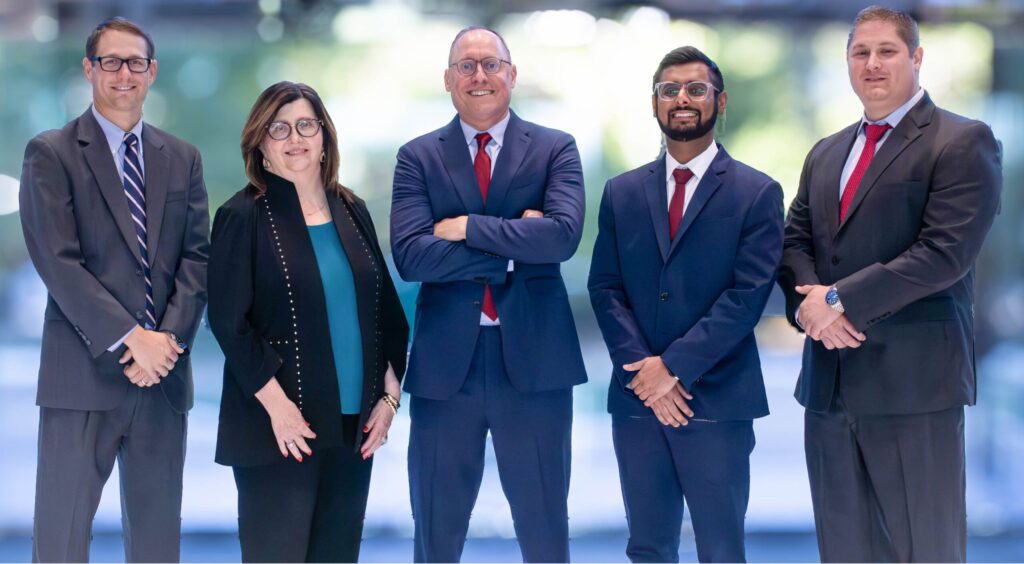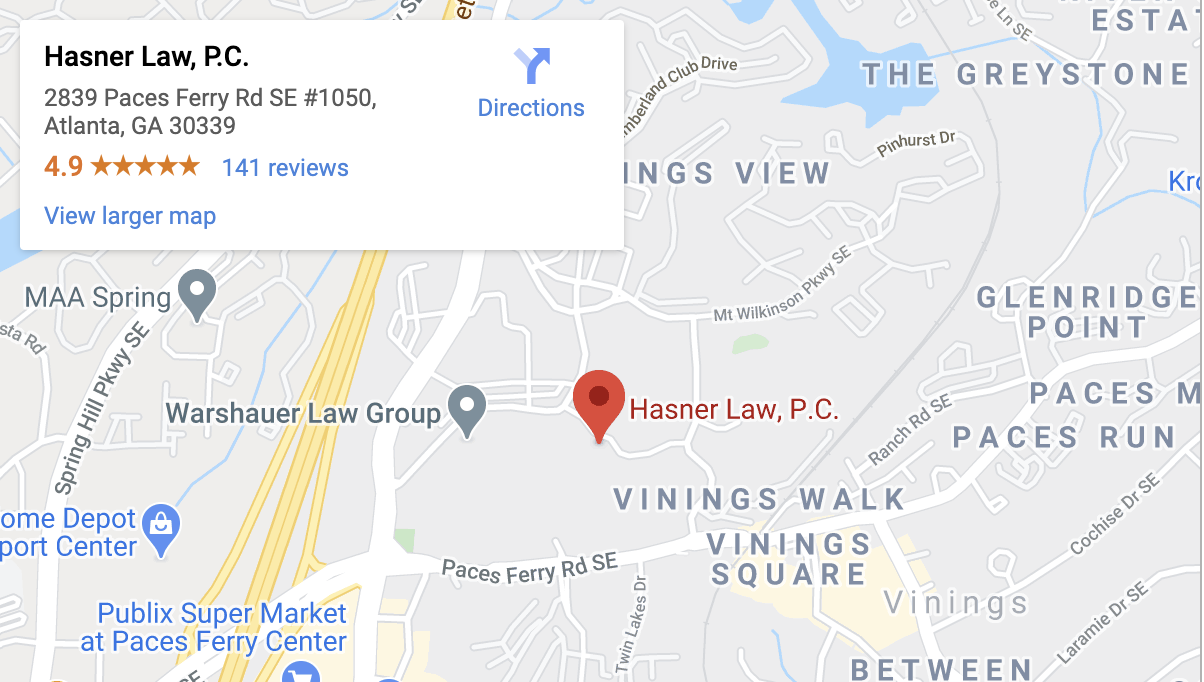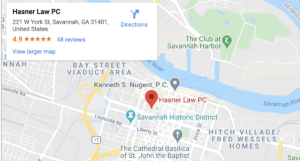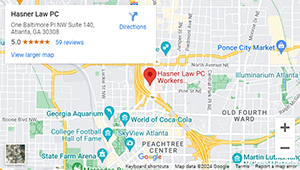Experienced Legal Representation for Victims of Medical Negligence in Savannah, Georgia
Hasner Law PC Personal Injury & Workers Compensation Attorneys is known for securing multi-million dollar settlements for injured victims in Georgia
Medical malpractice occurs when a healthcare provider fails to meet the accepted standard of care, resulting in injury or harm to a patient. In Savannah, individuals harmed by medical errors may be entitled to compensation under Georgia law.
Malpractice claims can arise from surgical mistakes, diagnostic failures, medication errors, birth injuries, and other preventable incidents within hospitals, clinics, and private medical practices.
Medical malpractice claims present significant challenges in both pursuit and success. They operate under complex laws that often disadvantage victims rather than support them.
Hasner Law, PC, represents patients and families in Savannah who have suffered due to healthcare negligence. If you need guidance from an experienced Savannah medical malpractice lawyer, our team is ready to help. We assess each case to determine liability, secure supporting documentation, and pursue claims through settlement or trial when necessary.
We aim to help injured individuals recover compensation for medical expenses, lost income, and other related damages caused by medical errors.
If you or someone close to you has suffered due to a medical provider’s negligence in Savannah, you can access legal assistance. Hasner Law provides free consultations and charges no legal fees unless compensation is obtained. Call (912) 234-2334 or submit an online request to initiate a confidential case review.
Savannah Medical Malpractice Guide
- Why Choose Hasner Law for Your Savannah Medical Malpractice Case
- Compensation Available in Georgia Medical Malpractice Cases
- Common Types and Causes of Medical Malpractice in Savannah
- Legal Standards for Medical Malpractice in Georgia
- Statute of Limitations in Savannah Medical Malpractice Cases
- The Litigation Process of a Medical Malpractice Claim in Savannah
- What Is the Difference Between Malpractice and General Negligence?
- What to Do If You Suspect Medical Malpractice
- Contact a Savannah Medical Malpractice Lawyer For Help
Why Choose Hasner Law for Your Savannah Medical Malpractice Case

Hasner Law provides dedicated legal advocacy to individuals injured by substandard medical care. We understand the procedural demands and evidentiary burdens required in Georgia medical malpractice cases and have experience building claims that hold negligent providers accountable.
Results That Reflect Our Commitment
Hasner Law has recovered millions for injured clients in Savannah and throughout Georgia. These outcomes include compensation for catastrophic injuries, permanent disability, and medical errors that caused lasting harm.
Familiarity with Local Courts and Procedures
Our attorneys regularly handle cases before the Chatham County State and Superior Courts. This local experience allows us to manage filings, deadlines, and court procedures efficiently. We are familiar with judicial expectations, evidentiary rules, and the pretrial demands often associated with malpractice litigation in Georgia.
Comprehensive Investigation and Expert Support
Medical malpractice claims require evidence that proves a deviation from the standard of care. Our legal team works with medical professionals, forensic experts, and financial consultants to investigate the facts and develop claims supported by objective analysis. We coordinate the affidavit of merit required under Georgia law and ensure the case is supported by competent medical testimony.
Transparent Communication and Ongoing Support
Clients receive regular updates and access to their case file, including documentation and attorney contact throughout the litigation process. We respond promptly to questions, explain legal procedures in plain terms, and ensure that each client knows the next steps in their case.
No Upfront Fees and Risk-Free Consultations
We handle all medical malpractice claims on a contingency fee basis. You pay no legal fees unless compensation is recovered through a settlement or trial verdict. Initial consultations are free, allowing injured patients and families to evaluate their legal rights without financial risk.
Compensation Available in Georgia Medical Malpractice Cases
Georgia law permits injured patients to recover economic and non-economic damages when a medical provider’s negligence causes harm. The amount and type of compensation available will depend on the severity of the injury, the resulting losses, and the specific circumstances of the malpractice incident.
Medical Expenses
Injured individuals may recover compensation for past and future medical expenses related to the malpractice incident. This includes hospital care, diagnostic testing, surgical intervention, physical therapy, prescription medication, medical devices, and follow-up treatment. Future long-term care or rehabilitation costs may also be claimed if supported by physician reports and life care planning.
Lost Income and Earning Capacity
When an injury prevents a person from returning to work, they may claim compensation for lost wages. If the injury results in reduced capacity to work in the future, damages may include the loss of earning potential based on the patient’s age, employment history, education, and medical restrictions. Employment records, tax returns, and vocational assessments may establish income verification.
Pain and Suffering
Non-economic damages compensate for physical pain, emotional distress, trauma, and the loss of enjoyment of life caused by medical negligence. These damages are typically assessed based on the severity and duration of the injury, as well as the impact on the patient’s daily activities and psychological well-being. Georgia does not impose a cap on non-economic damages in medical malpractice cases following the Supreme Court’s decision in Nestlehutt v. Atlanta Oculoplastic Surgery, P.C.
Disfigurement and Permanent Disability
If medical malpractice results in visible disfigurement, amputation, paralysis, or other permanent impairment, compensation may include additional damages. These may reflect the impact on the individual’s personal life and the physical limitations the injury imposes. Medical evaluations and testimony from treating physicians are often used to substantiate long-term disability claims.
Loss of Consortium
Spouses of injured patients may pursue loss of consortium claims in cases involving severe injury or long-term impairment. These damages reflect the loss of companionship, assistance, and marital support resulting from the injury.
Wrongful Death Damages
If a patient dies due to medical negligence, eligible family members may file a wrongful death claim. Compensation in these cases may include the full value of the decedent’s life, medical expenses incurred before death, funeral costs, and loss of familial support. Georgia law determines the order of beneficiaries based on the decedent’s surviving relatives.
Each compensation category must be supported by reliable evidence, including medical records, billing statements, tax forms, expert testimony, and personal documentation. Hasner Law assists clients with compiling this information and preparing a complete damages claim consistent with Georgia tort law.
Common Types and Causes of Medical Malpractice in Savannah

Medical malpractice can occur in hospitals, outpatient clinics, private practices, and long-term care facilities. While each case is fact-specific, common scenarios often lead to patient harm.
Misdiagnosis and Delayed Diagnosis
Failure to identify a condition or a significant delay in diagnosis may result in incorrect treatment, disease progression, or preventable complications. Diagnostic errors are frequently associated with cancer, stroke, infections, and cardiac conditions.
Surgical Mistakes
Surgical negligence may involve operating on the wrong body part, performing an unauthorized procedure, or leaving surgical instruments inside the body. Postoperative infections and complications from anesthesia may also support claims.
Birth Injuries
Improper prenatal care, failure to monitor fetal distress, or delayed C-sections can result in injuries to both mother and child. Common outcomes include cerebral palsy, brachial plexus injury, and maternal hemorrhage.
Medication Errors
Errors involving the prescription or administration of medication may lead to overdose, allergic reaction, or adverse drug interactions. These claims may include physicians, pharmacists, or nursing staff.
Failure to Monitor
Neglecting to monitor vital signs or respond to signs of distress during recovery can lead to preventable injuries. Inadequate staffing, poor communication, and lack of supervision often contribute to monitoring failures.
Informed Consent Violations
Patients must be informed of the risks, alternatives, and potential outcomes before undergoing a procedure. Legal action may be warranted if a provider fails to disclose material information and injury occurs.
Legal Standards for Medical Malpractice in Georgia
In Georgia, medical malpractice claims are governed by statutory and case law, which define healthcare providers’ obligations and the procedural steps required to file a claim.
Duty of Care and Standard of Care
Under O.C.G.A. § 51-1-27, a healthcare provider must exercise a reasonable degree of skill and care commonly exercised by other professionals in similar circumstances. This legal standard serves as the foundation for malpractice claims.
To succeed, a plaintiff must demonstrate:
- A valid patient-provider relationship existed.
- The provider failed to meet the applicable standard of care.
- This failure directly caused the plaintiff’s injury.
- The plaintiff suffered legally compensable damages.
Each element must be supported by evidence, including expert medical testimony and documentation of the injury.
Affidavit of Merit Requirement
Under O.C.G.A. § 9-11-9.1, Georgia law requires a malpractice complaint to be filed with an affidavit from a qualified medical professional. This affidavit must identify at least one act or omission that constitutes a breach of the applicable standard of care.
The affiant must:
- Be licensed and actively practicing or teaching in the same area of medicine.
- Be familiar with the standard of care relevant to the claim.
- Review the available records and assert a factual basis for the opinion.
Failure to include this affidavit may result in the lawsuit’s dismissal. Hasner Law ensures compliance with this requirement by securing a timely review from appropriate medical professionals.
Statute of Limitations in Savannah Medical Malpractice Cases

The time limit to file a medical malpractice lawsuit in Georgia is governed by O.C.G.A. § 9-3-71. The statute of limitations and statute of repose determine when legal action must be initiated.
Two-Year Statute of Limitations
Under Georgia law, the statute of limitations for medical malpractice claims is generally two years from the injury or death. However, if the injury is not immediately apparent, the two-year period may begin from when the injury was—or reasonably should have been—discovered. Courts may extend the deadline in limited situations, such as when a foreign object is left inside the body and not discovered until later.
Five-Year Statute of Repose
Regardless of discovery, all claims must be filed within five years of the alleged act or omission. This deadline is firm and does not account for discovery in most cases.
Exceptions for Minors and Mental Incapacity
The deadline is extended for minors under five until the child’s seventh birthday. The statute may also be tolled in cases where the plaintiff is legally incapacitated.
The Litigation Process of a Medical Malpractice Claim in Savannah
The legal process for medical malpractice in Georgia includes pre-litigation preparation and formal court proceedings. Each stage requires detailed documentation and procedural compliance.
- Initial Evaluation and Record Collection
The case begins with a review of medical records, timelines, and injury impact. A qualified consultant reviews the case for potential negligence. - Affidavit Preparation and Complaint Filing
The legal team drafts the complaint and coordinates the affidavit of merit, which is filed in the appropriate court, usually Chatham County Superior Court. - Service of Process
The defendant is served with the complaint and given time to respond. Georgia law allows for discovery to commence after the answer is filed. - Discovery Phase
Both parties exchange information, including interrogatories, depositions, expert reports, and document production. Medical providers may be required to submit to a deposition. - Motions and Pre-Trial Hearings
Either party may file motions to limit evidence, challenge expert qualifications, or request summary judgment. - Settlement or Trial
Many cases resolve before trial. If an insurance company does not offer a fair settlement, the case proceeds to a jury trial, where evidence is presented and damages are awarded if liability is proven.
What Is the Difference Between Malpractice and General Negligence?

Medical malpractice differs from other personal injury cases in Georgia because it requires proof of professional duty and standard-of-care deviation. Claims against general facilities or administrative staff may fall under simple negligence rather than malpractice.
Examples include:
- Slip-and-fall accidents in hospital lobbies.
- Security negligence resulting in patient harm.
- Equipment malfunctions not involving medical decisions.
Hasner Law evaluates the nature of each claim to determine whether it qualifies under malpractice statutes or general personal injury law.
What to Do If You Suspect Medical Malpractice
Taking prompt and informed action helps preserve your claim and ensures evidence is not lost.
- Request Medical Records
Obtain complete documentation from all providers involved in your treatment. Under Georgia law, you are entitled to these records. - Seek a Second Medical Opinion
An independent medical review may help confirm whether an injury resulted from negligence. - Keep Detailed Records
Document all symptoms, communications with providers, financial losses, and the emotional impact of the injury. - Avoid Contact with Insurance Adjusters
Do not discuss the incident with representatives of the provider or insurer before consulting legal counsel. - Contact a Savannah Medical Malpractice Attorney
Legal representation ensures timely filing, expert coordination, and preparation of evidence that complies with statutory requirements.
Contact a Savannah Medical Malpractice Lawyer For Help

If you were harmed by a healthcare provider’s negligence in Savannah, you may be entitled to compensation for your injuries, financial losses, and emotional harm. Hasner Law represents patients and families throughout Savannah in complex medical negligence claims.
To speak with a compassionate Savannah personal injury attorney, call (912) 234-2334 or submit a request through our contact form. You will not pay legal fees unless compensation is recovered through a settlement or a trial.
Hasner Law: Savannah Injury & Workers’ Compensation Attorneys
221 W York St,
Savannah, GA 31401
Ph: 912-234-2334





